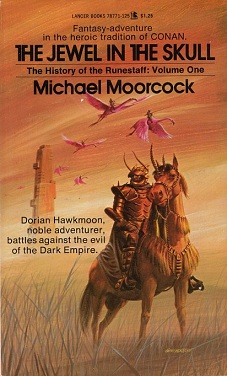Of course Doctor Who is no more than it wants to be, light Saturday evening sci-fi entertainment for the whole family, glitzy and fun, good enough for the hour it takes to watch it. Worrying about whether it should be anything more than this, at this point in time, is useless; it’s pretty clear its creative staff isn’t really interested. Therefore this post is really only for my own amusement, a short examination of what’s wrong with New Who without any expectation that it will ever change.
Last night’s episode was emblematic of New Who’s failings. It had an intriguing premise (little black cubes show up in their billions all over the world simultaneously, then do nothing. The doctor is intrigued, then bored, buggers off to go gallivanting across the universe, leaving the Ponds to deal with Real Life as opposed to Doctor Life, then almost a year later Things Start to Happen and the alien invasion really starts, only it turns out to be more of a weeding than an invasion, with some new alien baddy wanting to get rid of the human plague. In other words, starts off interesting, ends up being yet another overtly complicated alien plan easily spoiled by the doctor waving his sonic screwdriver around for a few seconds.
It’s also fairly incoherent, as the promise made in the trailer above, of the doctor coming to stay for a year just isn’t true, while the plot depends on some fairly big coincidence (the human transmitter needed to boast the signal from the alien ship to the cubes just happens to hang around the very same hospital as Rory works) to resolve itself and some of the bad guys’ actions (kidnapping people into their ship) just don’t make sense if their aim was extermination in the first place. All the fx, banter, witty asides and clever touches do only so much to cover this up even when watching.
In that regard it’s almost the opposite of the old Who, which for the most part was stodgy rather than glitzy, with low budget wobbly sets and cardboard monsters being made up for by good writing and acting, as well as more room to tell a story, not having to depend on just a one hour show to tell it, but being able to take four to six half hour episodes instead. that way the suspense of the little black boxes could’ve been build up and resolved more gradually, more in the background while the doctor went on other adventures, dealing with life on Earth while waiting for them to do their stuff…

